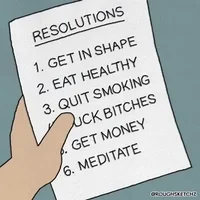1. Plan Your Day the Night Before
Planning your day the night before will help you stay
focused on important tasks and keep you on track. Something as simple as
setting out your clothes the night before will cut down the amount of time you
spend on your morning routine and start your day out on the right foot. I
personally make a to-do list every night for the following day with every
little thing the next day will entail. This helps to structure my day and to
make sure nothing gets left undone or forgotten.
2. Declutter your space
Nothing is less motivating than a messy house or workspace.
Get organized by throwing out or donating unwanted items and putting away
things that you want to keep. Spruce up your space with a candle or a colorful
plant. Having a positive and organized space will help you to get more done and
feel more relaxed.
3. Give Anything and Everything a Home
Now that you have decluttered your space and gotten rid of
unnecessary items, it’s time to give anything and everything a home. We’ve all
been there, you are ready to cross an annoying task off your list but can’t
find any of the paperwork or items you need to complete it. This only furthers
your annoyance and makes you put the task off even longer. I find that having a
home for everything from important documents to something as small as batteries
helps me to navigate tasks quickly and get them out of the way. Organizing
tools such as filing systems and drawer spacers are a great way to get started.
4. Start Saving
If you haven’t already, start saving. Even if you’re not
sure what exactly it is your saving for, I promise you there will come a time
when you will thank yourself for having a savings account. For some of us, this
may seem like an impossible task with smaller incomes or student loans but even
setting aside a dollar a day or even less will add up over time. You are never
too young to start saving, the sooner you start, the better.
5. Set Weekly, Monthly, and Yearly Goals.
When setting goals for ourselves it can be easy to get
overwhelmed. Setting smaller goals to help you achieve the larger ones will
help you get to the big picture faster. Breaking down your goals will help you
to design your to-do lists and make you feel more accomplished while working
towards them.
6. Stick to a routine
The amount of structure you maintain will directly impact
how organized your life will be. If you never know when to do things it can
become very easy to procrastinate. Now I’m not saying you have to plan every
single detail of your life, but having certain times of the day set aside for
your most important tasks will keep you focused. Starting and ending your day
the same way is a great way to get a routine started and then you can start to
work in specific times for specific tasks.
















